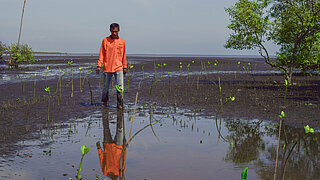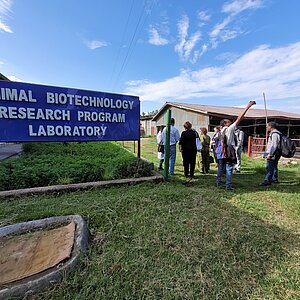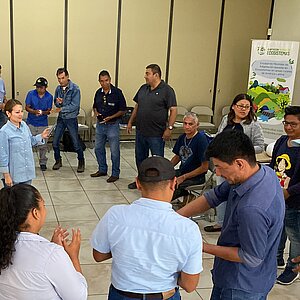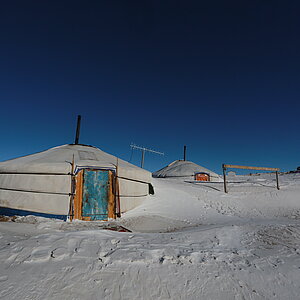IKI funding area: adaptation to the impacts of climate change
Strengthening resilience in partner countries (as of March 2024)

Even if all greenhouse gas emissions stopped tomorrow, negative impacts of climate change on nature and human society are now unavoidable. Adaptation to climate change is therefore a topic of increasing global importance. Extreme weather events such as flooding, hurricanes or heatwaves often tend to affect countries and populations who are much less capable of mitigating these disasters.
The Global Goal on Adaptation (GGA) from the Paris Agreement aims to address these concerns, stating that the international support given to developing countries for adaptation to climate change impacts should be continued and also increased.
Priority fields of action
With its funding area ‘Adaptation to the impacts of climate change’, the International Climate Initiative (IKI) is helping especially vulnerable countries and regions to strengthen their adaptability to the consequences of climate change. This means that people will be better-placed for coping with changing climatic conditions and extreme weather events.
The Strategy of the International Climate Initiative up to 2030 defines three priority fields of action for activities in the funding area of adaptation in which the IKI can be most effective:
1. Development and implementation of national adaptation plans

The IKI prioritises reliable planning processes that account for climate risks and their corresponding adaptation measures at all levels of political decision-making. This process is accompanied by national adaptation plans (NAPs): the IKI provides governments in partner countries with support for drafting these plans. An NAP can therefore be understood as a framework that encompasses and coordinates all of the adaptation activities at national, subnational and local level.
2. Ecosystem-based adaptation

The principles of ecosystem-based adaptation (EbA) play a central role in the implementation of adaptation measures. As part of larger-scale adaptation planning, ecosystem-based measures combine climate change impact adjustment and biodiversity conservation, and such solutions are often less expensive than those provided by technological approaches.
3. Resilience and security

Measures for adaptation to the impacts of climate change have limits – meaning that the damage and losses resulting from extreme weather events cannot be entirely avoided as climate change continues apace. The IKI therefore supports the development of strategies to handle questions relating to security policy and international law that are often unable to be addressed within conventional climate forums.
IKI’s strength: using synergy effects for effective project approaches
IKI projects often follow an integrative approach that targets a range of goals from the funding programme. Accordingly, many projects in the adaptation funding area also contribute to the mitigation of greenhouse gases or the conservation of biodiversity. A good example of this is the protection and conservation of coastal mangrove forests in Asia or South America. These forests help to protect coastlines from extreme weather events such as storms or floods. At the same time, they capture carbon dioxide from the atmosphere and provide a habitat for many birds, mammals and reptiles.
The IKI also helps to ensure that the policy frameworks in partner countries – which are used to manage climate change mitigation and biodiversity conservation – follow a coherent design. This means that national adaptation plans (NAPs), nationally determined contributions (NDCs), long-term strategies (LTS) and national biodiversity strategies and action plans (NBSAPs) together offer political orientation while using potential synergies from the various policy areas to achieve targets.
Climate finance: the international Adaptation Fund
Via the IKI, the German Federal Government is the largest donor to the international Adaptation Fund and has contributed more than EUR 550 million since the Fund’s formation in 2007. The Adaptation Fund finances projects that help population groups threatened by climate change in developing countries to adapt to the consequences of climate change. These projects are based on these countries’ needs and priorities. Since 2010, the Adaptation Fund has provided USD 1 billion for 165 projects benefiting some 43 million people (figures as of March 2024).
At a glance
From 2008 to the end of 2023, more than 180 projects with a total volume of EUR 800 million were approved in the funding area ‘Adaptation to the impacts of climate change’.
Selected projects
- Ecosystem-based adaptation on the northern central coast of Vietnam: restoration and co-management of degraded dunes and mangroves
- Global EbA Fund - Support for the Implementation and Upscaling of Ecosystem-based Adaptation
- Supporting Brazil in implementing its national agenda for adaptation to climate change (ProAdapta)
- Support Programme on Scaling up Climate Ambition on Land Use and Agriculture through NDCs and National Adaptation Plans (SCALA)
About the IKI
Cross-cutting topics of the IKI
Supporting international negotiation processes
Funding the socio-ecological transformation

Developing sustainable urban and peri-urban areas

Publications
-

-
 05/ 2023 | Tool/Open source product
05/ 2023 | Tool/Open source productUrban Planning and Design for Climate Resilience: A Reference Tool for Local Governments and Planning Actors in the Philippines
English (PDF, 116 MB)
The link has been copied to the clipboard



















